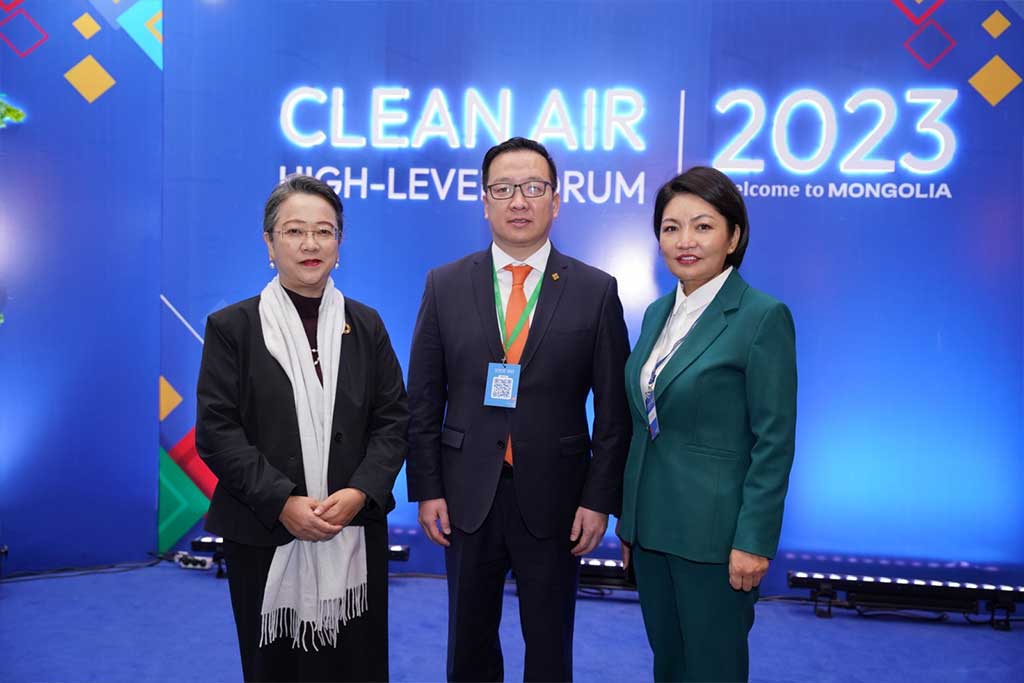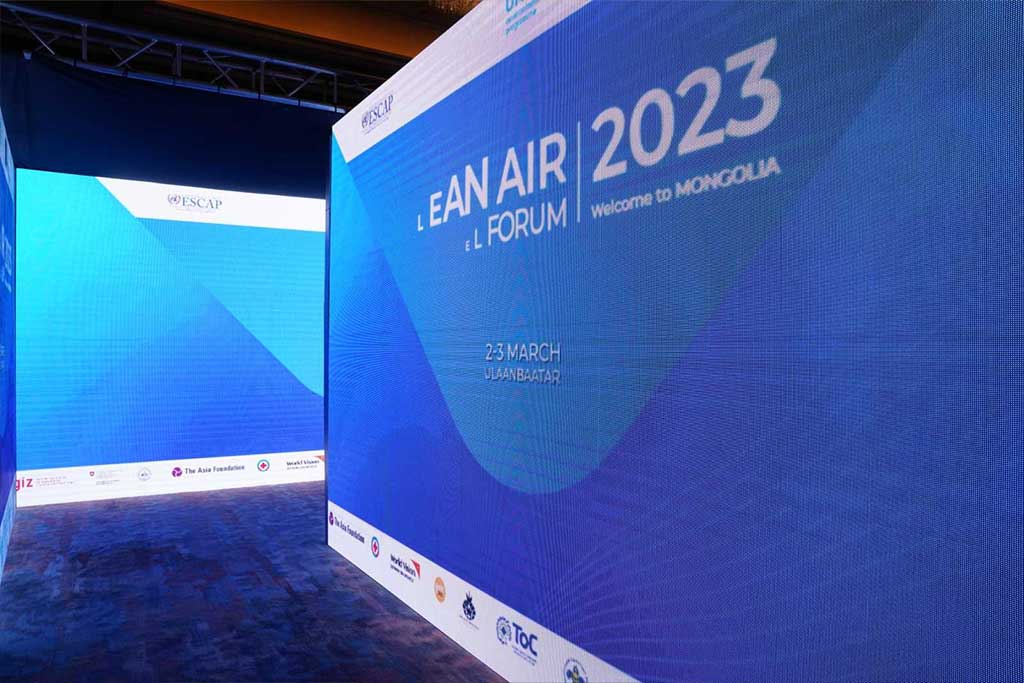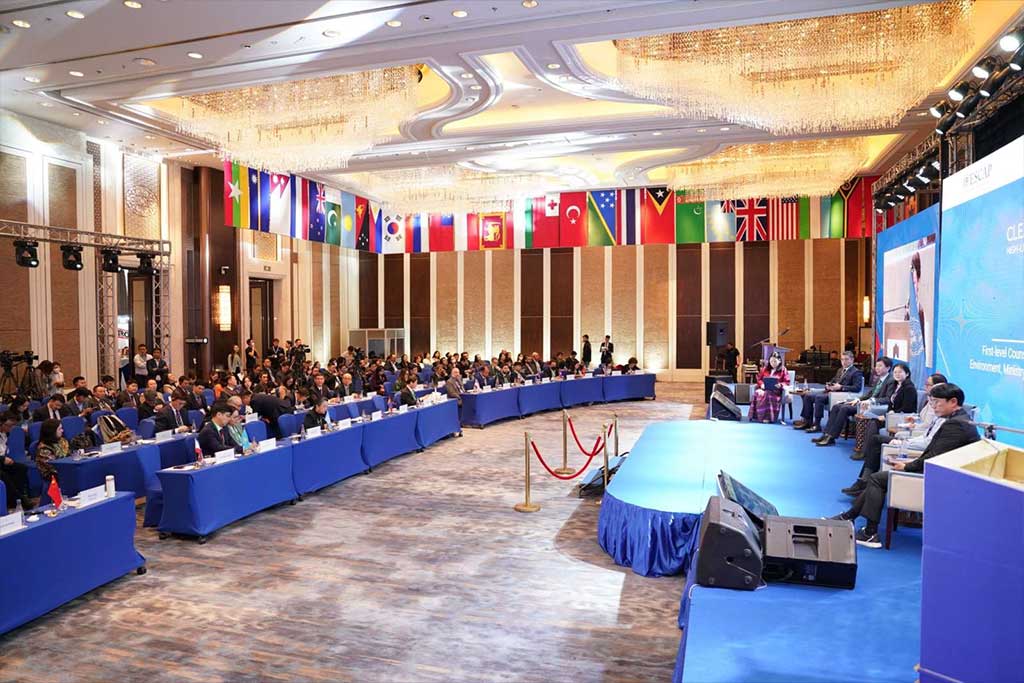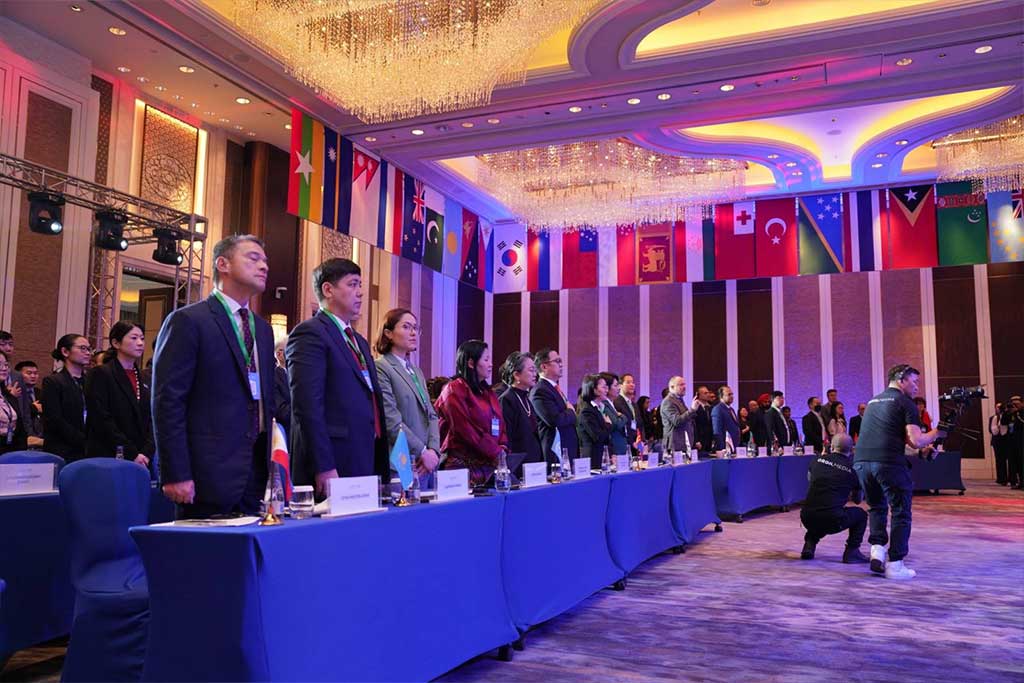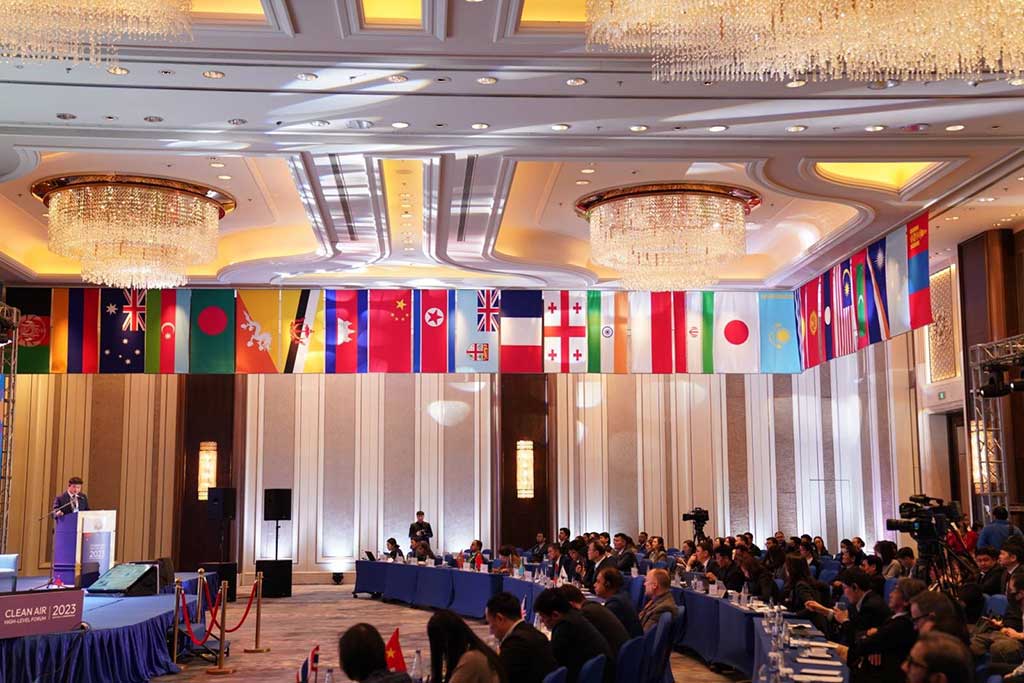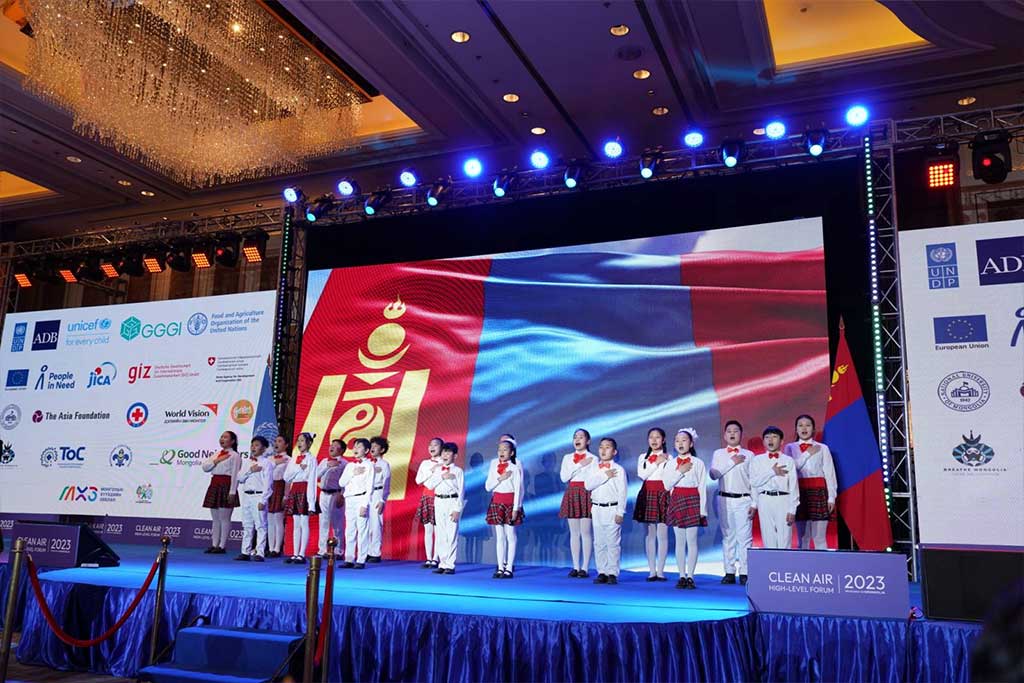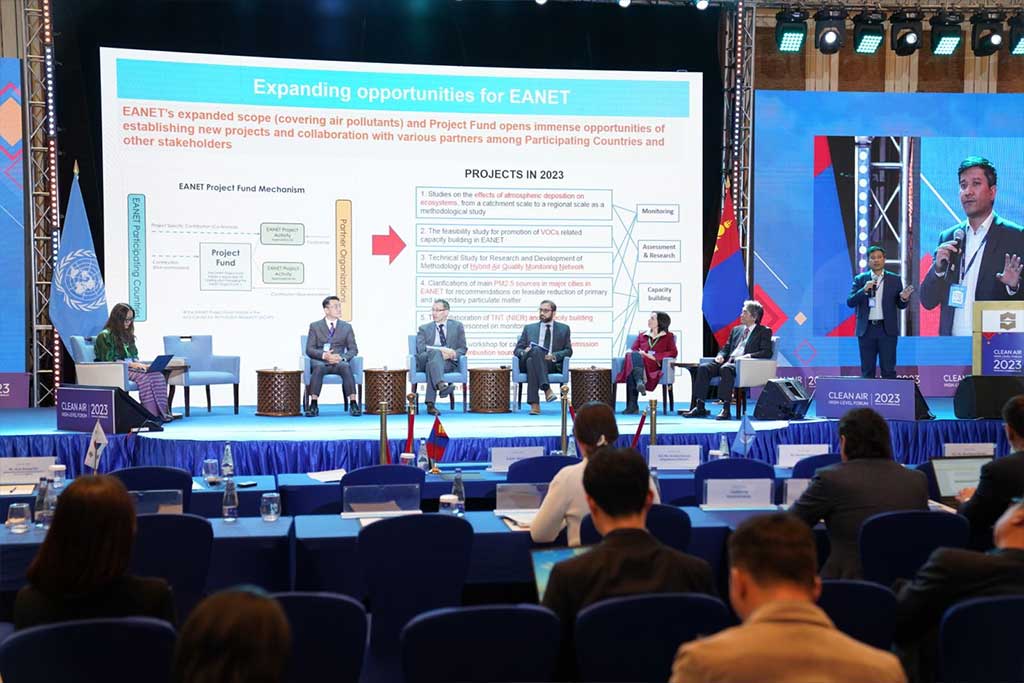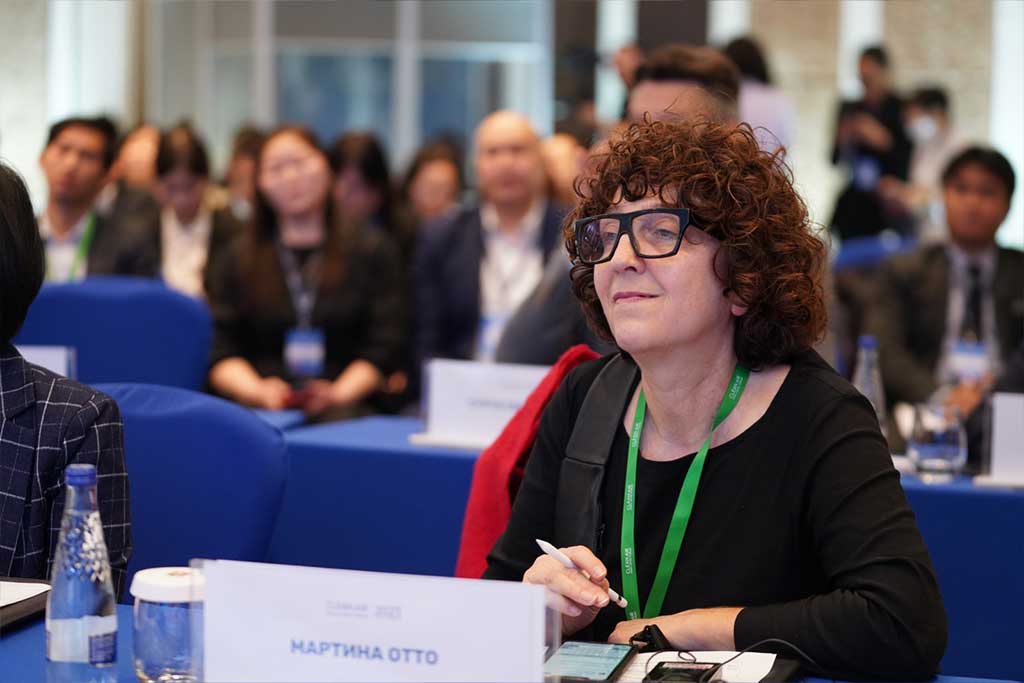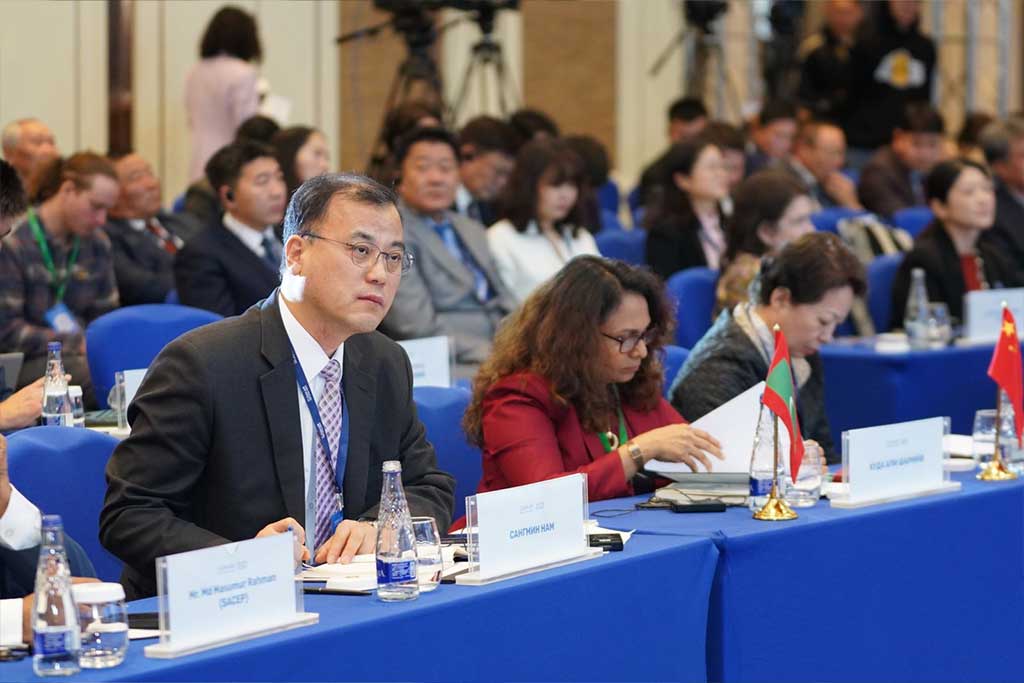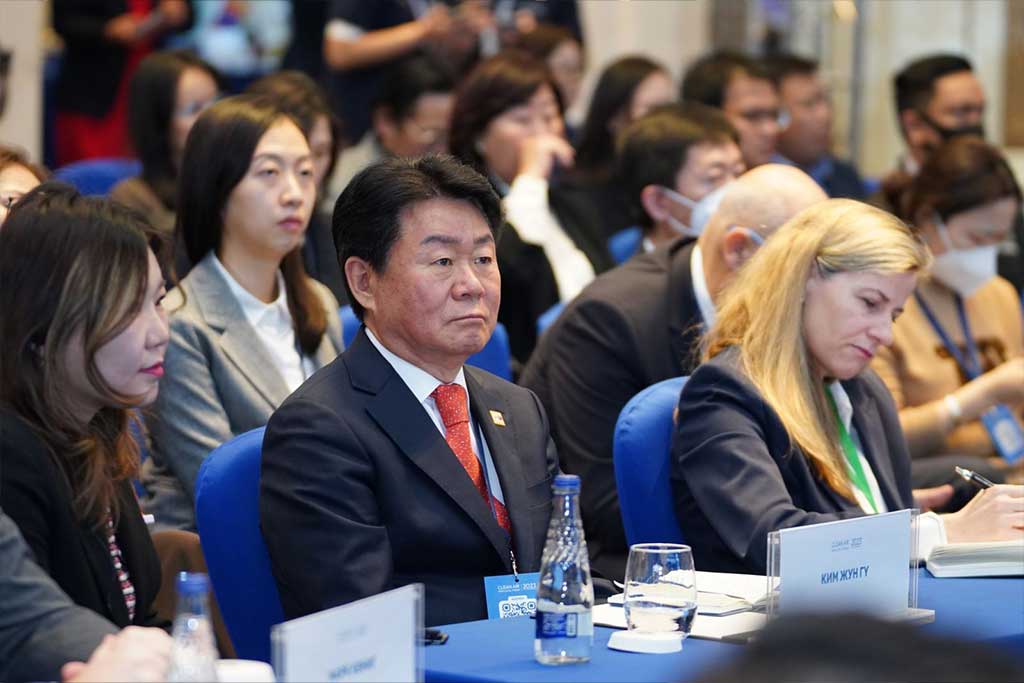The High-Level Forum on Clean Air was held on 2-3 March in Ulaanbaatar, Mongolia, co-organized by the Ministry of Environment and Tourism of Mongolia, ESCAP, and UNEP.
The economic growth and rapid urbanization in the Asia Pacific region have led to a significant increase in air pollution. To address this, member States of ESCAP have adopted the Asia-Pacific Regional Action Programme on Air Pollution (RAPAP), which covers improving air quality management, facilitating air quality monitoring, sharing open data, exchanging best practices, supporting capacity building, and mobilizing multilateral cooperation. The RAPAP emphasizes strengthening and leveraging existing multilateral cooperation initiatives and their relevant scientific committees. It also recommends formally involving national experts in scientific and technical activities, including through a Technical Expert Group, and engaging major groups and other stakeholders.
Five Ministers and Vice Ministers, as well as other high-level representatives from ESCAP member countries, participated in the forum and discussed partnership activities among multilateral and international cooperation mechanisms on air pollution. They also discussed supporting national action on clean air, the contribution of the RAPAP to the work of multilateral and international cooperation mechanisms, and the formulation of working groups on data and air quality standards.
Air pollution is a significant issue in Mongolia, particularly in urban areas during the winter months. The main sources of air pollution in Mongolia are coal-fired stoves used for heating and cooking, vehicle emissions, and dust from construction sites and unpaved roads.
Severe air pollution in Mongolia has serious public health consequences, particularly for vulnerable groups such as children, the elderly, and those with respiratory illnesses. It is estimated that air pollution contributes to over 10,000 premature deaths in Mongolia each year.
To address this issue, the Mongolian government has implemented a number of measures, including the introduction of cleaner heating technologies such as gas and electric heaters, and the adoption of stricter emissions standards for vehicles. The government has also launched public awareness campaigns to encourage citizens to take steps to reduce their exposure to air pollution, such as avoiding outdoor activities during periods of high pollution and wearing masks when necessary.
